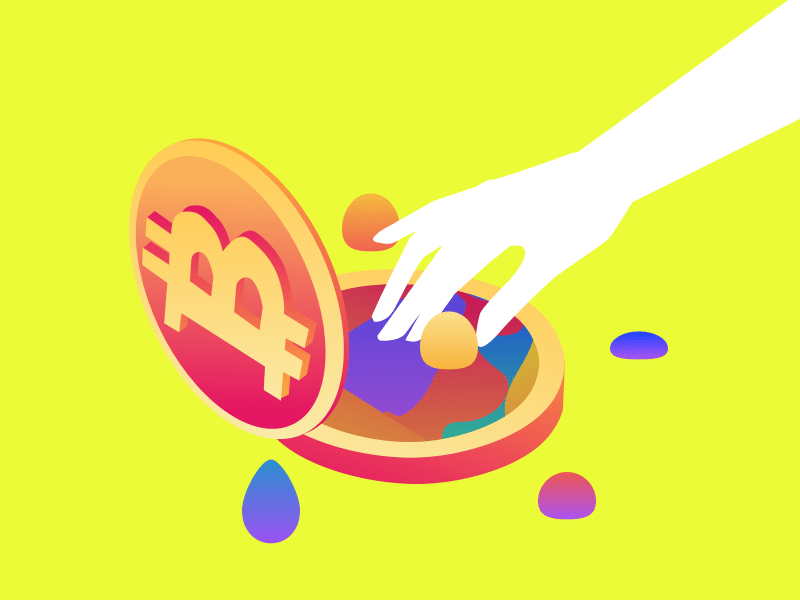Bitcoin Intrinsic Value

What is intrinsic value?
Intrinsic value is a way to measure what is the asset is worth based on fundamentals. According on Investopedia definition,
“Intrinsic value is the perceived or calculated value of the company, including tangible and intangible factors, using fundamental analysis. Also called a true value, the intrinsic value also may or may not be the same as the current market value” – Investopedia
In traditional finance, analysts calculate the intrinsic value of stocks based on metrics such as Price to Earnings ratio. However, since Bitcoin does not generate cash flow, the same valuation methodology can’t be applied to Bitcoin.
What is the intrinsic value of Bitcoin?
Many argue that Bitcoin has no intrinsic value because it is backed by nothing and does not generate cash flow. However, bitcoin does have value, as evidenced by its parabolic price action. As an asset class, Bitcoin can be categorized as a monetary/store of value asset, similar to Gold and Fiat currencies. The price of these assets move mostly based on supply and demand dynamics. Gold and fiat currencies such as USD, IDR, etc does not produce cash flow, yet they have market prices that fluctuate depending on demand/supply of each currency in the commodity/forex market.
Additionally, Bitcoin is actually backed by a highly-secured network that made it a superior asset. We can see that there are five factors that gives bitcoin its intrinsic value
- Security
- Decentralization
- Scarcity
- Immutability
- Utility
Security
Bitcoin is very secure because it employs many cryptographic techniques such as ECDSA algorithm (for public-private key) and SHA-256 hashing function (for proof-of-work), and it lives as a distributed consensus system with no single point of failure. Ownership of Bitcoin on the Bitcoin blockchain is represented by private key. In order to spend/transact Bitcoin, the owner has to create a cryptographically-signed transaction using that private key. All transactions on the bitcoin blockchain are combined into ‘blocks’, and each blocks are chained to one another to make it tamper-proof. All bitcoin servers (nodes / miners) around the world come into consensus on the latest state of transactions, and any dishonest servers that attempted to manipulate past transaction data is excluded from the network.
Decentralization
Bitcoin’s decentralization contributes to Bitcoin’s security. Everyone around the world can download Bitcoin’s protocol and the ledger is distributed around the world through nodes and miners. All the transactions in Bitcoin can be easily verified and any parties that tried to manipulate Bitcoin’s data will be immediately rejected in the system.
Bitcoin’s decentralization made Bitcoin more secure and strong because there is no single point of failure and everyone can participate in validating transactions and securing the network.
Scarcity
Bitcoin has a clear maximum supply cap from the get-go. There will be only 21 million BTC ever created in the world. From the moment we wrote this article, there is already more than 18,6 million BTC that has been mined. Bitcoin supply is built-in into the bitcoin program. We all know that the new bitcoin is minted as a reward for a miner who can create a new block. However, every 210,000 blocks or approximately every four years this reward is cut in half. This event is called halving. With halving, we can predict that the last Bitcoin is going to be mined in 2140. By the year 2036, 99% of bitcoin will be mined and by the year 2048, 99,9% bitcoin will be mined. No matter what happens with Bitcoin’s price, the supply will remain the same, unchangeable. Bitcoin’s scarcity is absolute.
Immutability
Bitcoin immutability is priceless. All Bitcoin transactions can’t be double-spent, altered, or faked. This immutability also contributes to Bitcoin’s security. All of the bitcoin transactions are placed in chronological order as blocks chained to each other. If there is a dishonest miner that altered past transactional data, it is very easy for other miners to notice the fraud, and other miners will reject that bad actor. To change data in Bitcoin means you have to change all of the data in the past as well and need to get a consensus from more than 51% of all miners around the world, which is impossible. Bitcoin’s immutability makes bitcoin secure and reliable store of value
Utility
We can see in commodities, crude oil is considered to be valuable because it is scarce, hard to obtain, and has utility / economic use. Gold is also scarce, hard to obtain, and has utility. Bitcoin is also scarce and hard to obtain – but what is then the utility of Bitcoin?
Bitcoin’s utility is becoming a store of value through its highly-secured network. Since Bitcoin is decentralized and anyone can participate in the network, Bitcoin is becoming more than just a store of value. For people in Argentina or Venezuela, Bitcoin’s ability to store the value of their wealth is really helpful when a country faces a hyperinflation/crisis of the local currency.
Conclusion
Bitcoin’s intrinsic value can’t be compared to other traditional assets because Bitcoin is a new type of asset. Bitcoin is still trying to find its position among other assets, and it is too early for us to determine Bitcoin’s intrinsic value unanimously. The value of bitcoin will likely change based on the perception of the people and the growth of Bitcoin’s adoption in the near future.
Share
Table of contents


